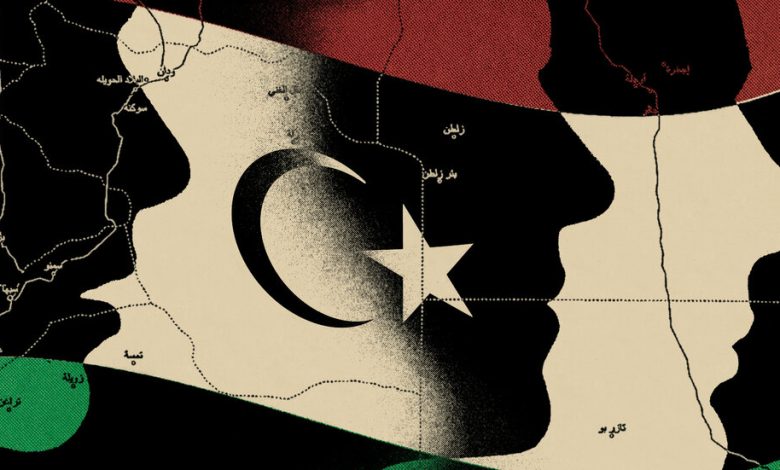In ‘My Friends’ an Exile Finds Himself Outside Libya, but Never Far Away

MY FRIENDS, by Hisham Matar
In the works of the Libyan-born writer Hisham Matar, a few subjects take center stage again and again. There’s the violence of the Muammar el-Qaddafi regime: torture, assassination, disappearance, confessions broadcast on state television, government agents listening to phone calls. And there’s the experience of Libyans seeking safety in exile. Matar — himself one such exile — picks apart their psyches, analyzing at a microscopic level how violence and migration have altered how they think and feel and relate to the people closest to them. He has returned to this cluster of topics as if it’s a house he’s obsessed with, examining it from different angles, sneaking inside and finding new rooms, even new wings.
In Matar’s first novel, “In the Country of Men” (2007), a young boy struggles to understand the way his family’s life is shaped not just by Qaddafi’s dictatorship, but also by his father’s dangerous secret work as an activist. By the end, the child has been sent for his own safety to Egypt; it is implied that he might never return. In “Anatomy of a Disappearance” (2011), a Libyan boy raised in Egypt is sent reeling when his father, an anti-Qaddafi agitator, is kidnapped and disappeared in Libya’s menacing network of secret prisons. In his Pulitzer Prize-winning 2016 memoir, “The Return,” he wrote about his own activist father’s disappearance under similar circumstances, and about a 2012 journey he made to Libya, hoping the man he hadn’t seen in decades might somehow still be alive. These are harrowing books, evoking how insidiously oppression seeps into the soul.
Matar’s new novel, the ambitious and poignant “My Friends,” is his first book about Libyans without the figure of the persecuted father. The protagonist, Khaled, is a young man who leaves Libya in 1983to attend university in Scotland. His dad opposes the Qaddafi regime, but keeps his opinions to himself, writing political studies he never shows to anyone. Khaled isn’t really an activist either, but he does agree — almost on impulse, queasily high on the thrill of transgression — to attend an anti-Qaddafi protest outside the Libyan Embassy in London.
This was a real 1984 protest; Matar didn’t invent it. It was also attended by members of the Libyan secret police, with machine guns in tow. They opened fire on the crowd, killing a British police officer and injuring several protesters. In “My Friends,” Khaled is among the injured. He spends weeks in the hospital recovering, then decades grappling with the shooting’s aftereffects.
After Khaled’s release, he is granted political asylum. Because he can’t be sure whether any photographs from the protest showed his face, or whether the Libyan security forces had sources in his hospital, he doesn’t know if he’s a marked man. He doesn’t know if he can safely return home. He doesn’t know if his family knows what happened to him, and — aware that, as a matter of course, his letters home are being read, and his calls being monitored — he can’t tell them, which means he can’t explain why he isn’t coming home, or enjoy the pleasure of narrating his life to those who know him best. The loneliness of forging a new life abroad is compounded, wrenchingly, by a dense fog of fear and secrecy.
Time passes in “My Friends” in a flurry of meals, walks, letters, phone calls, delicately infused with suspense. Whom can Khaled let in, and how far, and whom must he shut out?
Much of the novel concerns his deep, sometimes fraught relationships with two fellow exiles: Mustafa, a fellow student who accompanied him to that fateful protest; and Hosam, a writer who once wrote allegorical fiction critical of the Libyan regime. Matar’s examination of this triangle of affection (and distance) is a fine-grained study of friendship, among exiles or anyone else: the million subtle ways friends’ psyches interlock; the pain that results when they fail to.
The prose is more supple than in Matar’s previous novels, allowing the narration to slide, like adult consciousness, between decades and eras, between appreciation and resignation. “I have managed, Mother, not to want a different life most of the time,” Khaled imagines saying, “and that is some achievement.”
After the eruption of the Arab Spring, Khaledhas to decide — as Matar himself had to consider — whether he will return to Libya. Mustafa and Hosam face the same question. Part of the novel’s accomplishment is how their divergent decisions all make sense, which makes them no less painful.
Readers encountering Matar for the first time will find in “My Friends” a masterly literary meditation on his lifelong themes. For those who already know his work, the effect is amplified tenfold. In the dark house Matar continues to explore, the rooms are full of echoes: The further in you go, the louder they get.
MY FRIENDS | By Hisham Matar | Random House | 391 pp. | $28.99
